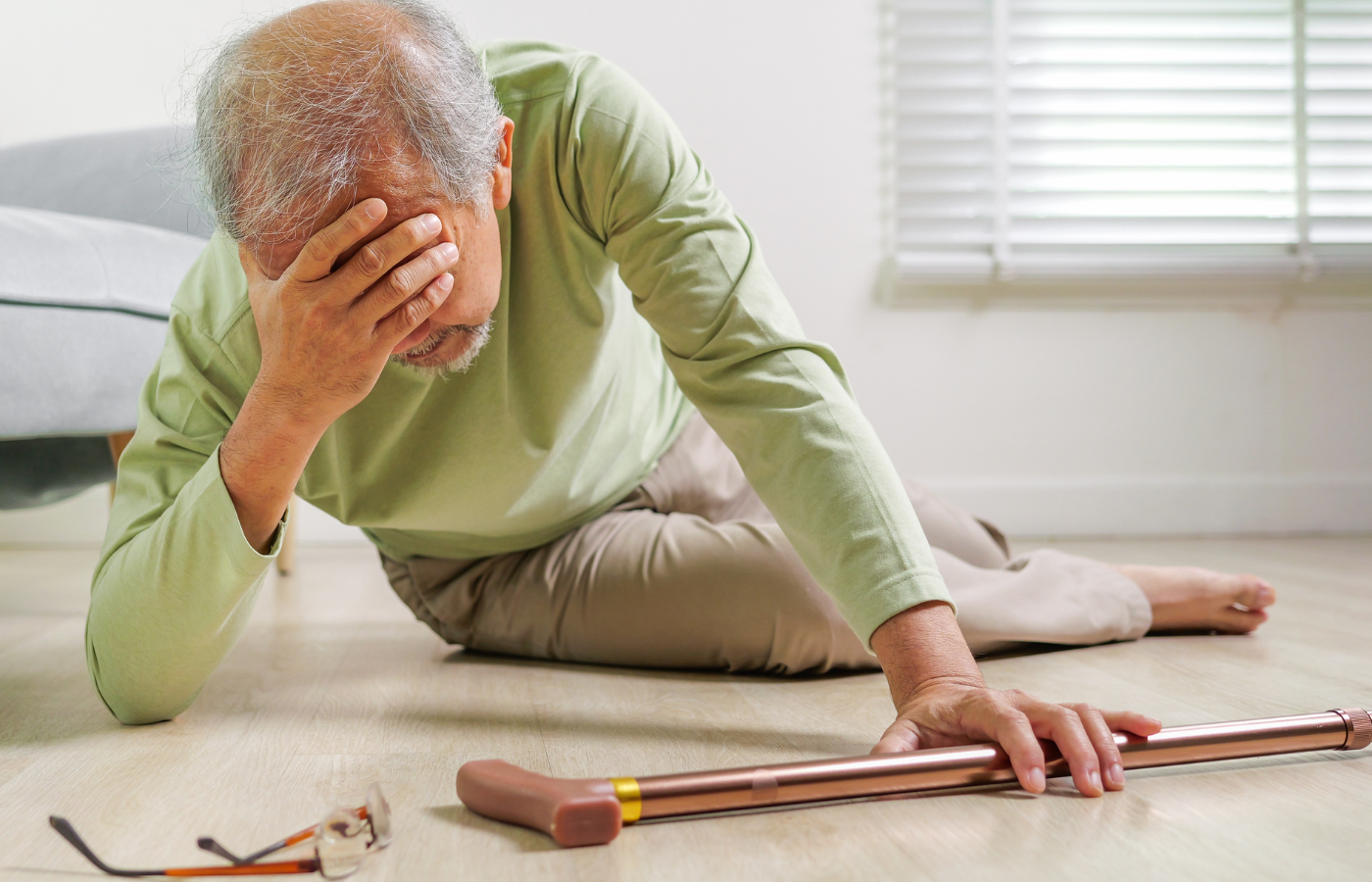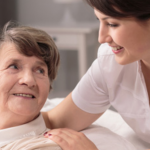Did you know that 37% of injury related deaths are the result of falls?
This week marks Falls Prevention Week, raising awareness of the risks of falls, and the preventative measures we can take to keep ourselves and our loved ones safe.
Falls among the elderly, especially within residential aged care (RAC), are common and can have serious consequences. According to research, approximately 30% to 50% of older individuals residing in aged care facilities experience falls each year, with 40% of them enduring recurrent falls.
“As we age we become fragile and more frail, so one of the risks of sustaining a fall is that of broken bones, particularly of the hip, shoulder, arm and wrist” advises Plena Physiotherapist Alex Grabador. “Additionally, the risk of brain or head injury is also high, particularly amongst those who are taking blood thinners” he continues.
Falls pose a multitude of risks and consequences for our older population:
- Increased care needs: Falls often result in injuries severe enough to necessitate relocation to RAC facilities, marking a significant loss of independence for older adults.
- Physical injuries: Fractures, head injuries, sprains, and bruises are common outcomes of falls, leading to hospitalisations, rehabilitation, and potential long-term disabilities.
- Psychological impact: Fear of falling can lead to anxiety, social isolation, and depression, further diminishing quality of life.
“Also a lack of confidence after a fall can cause an older person to self-isolate and not want to walk or leave their room. This lack of movement makes them weaker, and in turn increases their risk of a subsequent fall” adds Alex.
Plena physiotherapists like Alex benefit from The Plena Care Pathway, our innovative and award winning program that includes key phases of intervention to promote rehabilitation and independence.
From a physiotherapy and falls-prevention perspective, these include;
- Restorative Therapy: Following a fall-related injury, physiotherapists provide restorative therapy sessions aimed at improving mobility, function, and confidence.
- Pain Assessment: Pain assessment is integral to fall prevention, as pain can impair balance, gait, and cognition, increasing the risk of falls.
- Active Ageing: Physiotherapists design tailored exercise programs to improve balance, strength, coordination, and flexibility, addressing key risk factors for falls. Programs are implemented at an individual level, and later within a group setting as rehabilitation has progressed and confidence improved.
Alex’s top tips for reducing your risk of falls.
- Engage in regular physical activity to improve or maintain your strength, balance, coordination and flexibility. This does not exclusively mean exercise programs, but also hobbies and activities that keep you moving like crafts, gardening and playing with grandchildren.
- Manage your pain. Pain can impair your movement, balance control and cognition and increase your risk of falls.
- Be mindful of positioning and placement. If you need a walking aid, make sure it is kept in an accessible location close to you when you need it. In a RAC setting this also includes making sure your call button is within reach, as well as ensuring chairs support you sitting in a comfortable position that allows free movement.
The leading advice within the aged care and physiotherapy industries is that our most powerful tool for preventing falls is maintaining strength, balance, coordination and flexibility through regular exercise. This Falls Prevention week we encourage all Australians, young and old, to make physical activity an integral part of our routine to keep ourselves safe, mobile and independent as we age.
SOURCES



